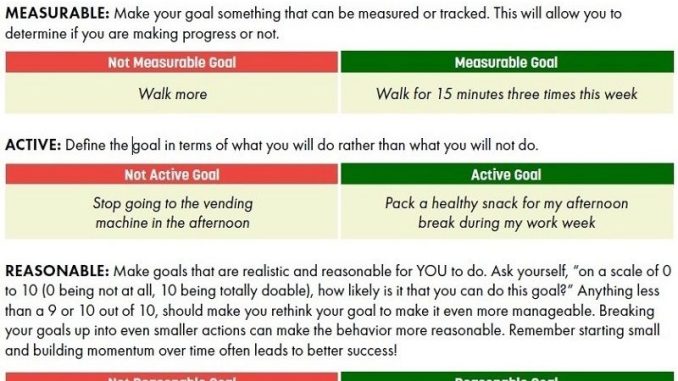
When it comes to weight loss, setting realistic goals is key to success. Many people struggle with losing weight because they set unattainable goals that leave them feeling discouraged and defeated. In this article, we will discuss how to set realistic weight loss goals and provide tips on how to reach them.
Setting Realistic Goals
The first step in achieving your weight loss goals is to set realistic and achievable targets. Instead of aiming to lose a drastic amount of weight in a short period of time, focus on making small, sustainable changes that will lead to long-term success. For example, instead of aiming to lose 20 pounds in a month, set a goal to lose 1-2 pounds per week.
It’s also important to consider your current lifestyle and habits when setting your weight loss goals. If you have a sedentary job and rarely exercise, it may not be realistic to set a goal of exercising for an hour every day. Instead, start small by committing to a 30-minute walk a few times a week and gradually increase your activity level as you build endurance.
Tracking Progress
In order to stay motivated and on track with your weight loss goals, it’s important to track your progress. Keep a food journal to monitor your daily caloric intake and make note of any patterns or trigger foods that may be hindering your progress. You can also use a fitness tracker or app to monitor your activity level and set daily or weekly goals for steps taken or calories burned.
Tracking your progress can help you identify areas where you may need to make adjustments and can also provide a sense of accomplishment as you see your hard work paying off. Celebrate your successes along the way, whether it’s reaching a milestone weight loss goal or completing a challenging workout.
Staying Motivated
One of the biggest challenges in achieving weight loss goals is staying motivated in the face of setbacks and plateaus. It’s important to remember that weight loss is not always linear and that there will be times when progress is slower or stalls completely. Instead of getting discouraged, use these moments as an opportunity to reevaluate your goals and make adjustments as needed.
Find a support system of friends, family, or a weight loss group who can provide encouragement and accountability. Surround yourself with positive influences and avoid negative self-talk or comparisons to others. Remember that everyone’s weight loss journey is unique and that progress is not always measured by the number on the scale.
Tips for Achieving Your Goals
Here are some additional tips for hitting your weight loss goals:
Focus on whole, nutritious foods like fruits, vegetables, lean proteins, and whole grains
Stay hydrated by drinking plenty of water throughout the day
Get 7-9 hours of quality sleep each night to support weight loss and overall health
Limit processed foods, sugary drinks, and high-fat snacks
Make time for self-care activities like meditation, yoga, or relaxation exercises
By setting realistic weight loss goals, tracking your progress, staying motivated, and following these tips, you can achieve success in your weight loss journey. Remember that slow and steady progress is key, and that small changes can lead to lasting results. Stay focused, stay positive, and don’t be afraid to ask for help when you need it.
With dedication and perseverance, you can hit your weight loss goals and live a healthier, happier life.
